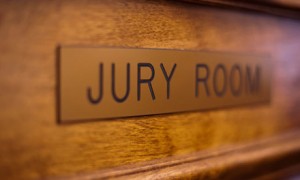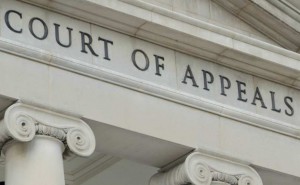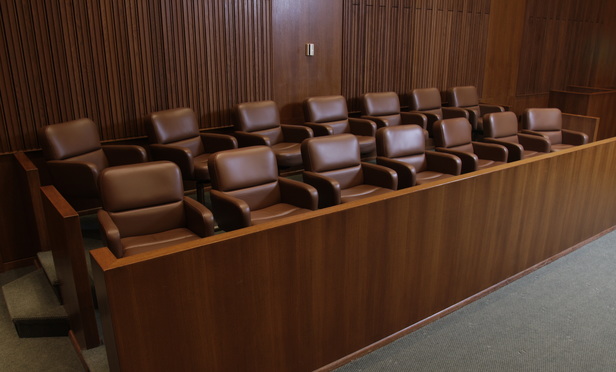Timely Objection Required By Counsel For Appellate Review Upon Mode Of Errors Claim When Jury Requested Testimony Readback
People v Morris
New York Court of Appeals
27 NY3d 1096
Decided on June 7, 2016
Issue: Whether or not there was a mode of proceedings error committed by the trial court when the trial court failed to read the trial lawyers a note from the deliberating jury requesting a readback of a certain testimony before reappearing before the court. Secondly, whether the trial court committed a mode of proceedings error where the jury requested th e readback of said testimony and the trial court only allowed the jury to hear the direct testimony. The trial attorneys failed to object to either issue.
e readback of said testimony and the trial court only allowed the jury to hear the direct testimony. The trial attorneys failed to object to either issue.
Holding: The Court of Appeals held that there was not a mode of proceedings error committed by the trial court when the trial court failed to read the trial lawyers a note from the deliberating jury requesting a readback of a certain testimony before reappearing before the court. Secondly, the trial court did not commit a mode of proceedings error when the jury requested the readback of said testimony and the trial court only allowed the jury to hear the direct testimony. The Court concluded that the trial attorneys’ failure to object to either issue required the Court of Appeals to reverse the order and have the case remitted to the Appellate Division.
Facts: At trial, the jury requested a readback of a certain testimony during deliberation. The Appellate Division held that the trial court did not discuss the notes content with the attorneys nor did they discuss the trial court’s intended response before calling the jury back into the courtroom, and the Appellate Division reversed the conviction and held that there were modes of proceeding errors despite the fact that counsel failed to object. The court read only the precise content of the note into the record in the prese nce of counsel, the defendant, and the jury. The direct examination testimony was read to the jury but the cross-examination testimony was not. Counsel did not object to the court’s procedure nor to the response to the note.{**27 NY3d at 1098}
nce of counsel, the defendant, and the jury. The direct examination testimony was read to the jury but the cross-examination testimony was not. Counsel did not object to the court’s procedure nor to the response to the note.{**27 NY3d at 1098}
“The disagreement between the Appellate Division and the Court of Appeals concerned a question of proceedings error in which the court ‘fail[ed] to fulfill its responsibility to provide a meaningful response to the jury’s inquiry'” (120 AD3d at 836-837).
Legal Analysis: The Appellate Division first held that the trial court’s failure to discuss the jury’s note and the court’s intended response with the trial lawyers after the jury’s deliberation constituted a mode of proceedings error. The Court of Appeals disagreed with this decision and further held that the trial court did, in fact, read the exact content of the note to counsel and to the defendant. CPL 310.30 states:
“…after notice to both the people and counsel for the defendant and in the presence of the defendant, must give such requested information or instruction as the court deems proper. With the consent of the parties and upon the request of the jury for further instruction with respect to a statute, the court may also give to the jury copies of the text of any statute which, in its discretion, the court deems proper.”
The Court of Appeals determined that the trial court did not mislead counsel in regards to the note since the trial court directly read the content of the note to counsel. Therefore, pursuant to CPL 310.30, the court satisfied its meaningful notice obligations, requiring the lawyers to object in order to be considered for appellate review.
The disagreement between the Appellate Division and the Court of Appeals concerned a question of proceedings error in which the court fail[ed] to fulfill its responsibility to provide a meaningful response to the jury’s inquiry (120 AD3d at 836-837).
The Court of Appeals held that counsel had the duty to object in a timely manner in order to be considered for appellate review. Since the trial court read the jury’s note directly to the trial lawyers, the Court of Appeals reasoned that counsel was fully aware that the cross-examination testimony would not be read to the jury. As a result, the Court of Appeals held that the claim of error was invalid as counsel had meaningful notice of the notes content and was, therefore, aware that the court lacked a response to the testimony. “Counsel’s silence at a time when any error by the court could have been obviated by timely objection renders the claim unpreserved and unreviewable here” (People v Starling, 85 NY2d 509, 516 [1995]).
The Court of Appeals reversed the order and remitted the case to the Appellate Division, Second Department pursuant to section 500.11 of the Rules of the Court of Appeals.
